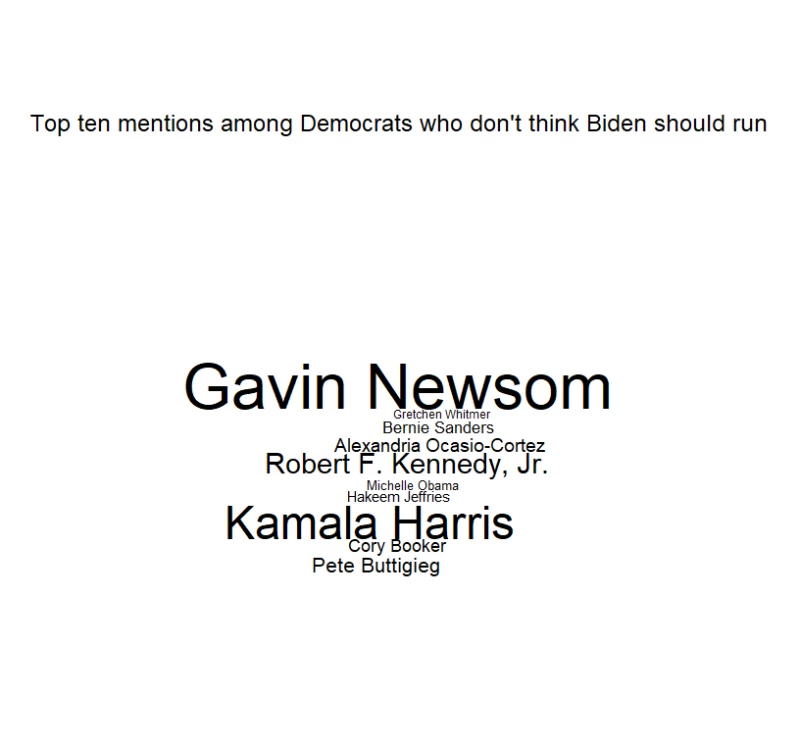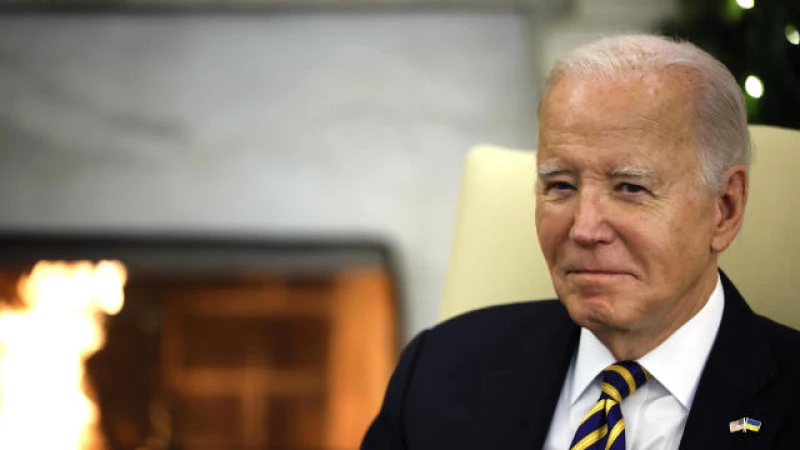First off, a majority of Democrats do think Joe Biden ought to run for reelection, which he is doing.
But it's not a huge majority; more than a third of Democrats don't think he should run. And some Democrats have been voicing this doubt for a while.
So, key questions remain: What exactly are their concerns? And is that third motivated by a feeling that he's done a good job but now is the time to move on, or is it mixed with any discontent with his performance?
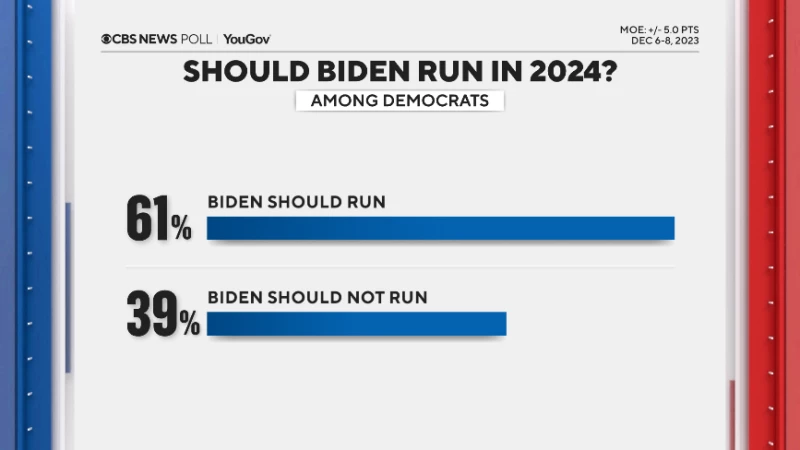
Overwhelmingly, it's about age.
These Democrats have concerns mainly about President Biden's age and whether he could finish a second term if elected to one. A slight majority also show concern about the decisions he might make in office and wonder if he can campaign effectively in 2024.
Mr. Biden isn't unique in eliciting sentiments like this about age — we've seen voters worry about politicians' ages more broadly.
Nor is Mr. Biden the first Democratic incumbent facing some skepticism from his own party about whether to run again. In December 1995, about a quarter of Democrats either didn't want Bill Clinton to be the party's nominee or weren't sure. Clinton of course did go on to win reelection.
And yes, there is a little discontent in the mix, too. These Democrats are also less likely than Democrats overall to approve of his job performance right now: they're split about evenly on approving or disapproving. The Democrats who don't want him to run want a nominee who's different from Mr. Biden, not similar to him.
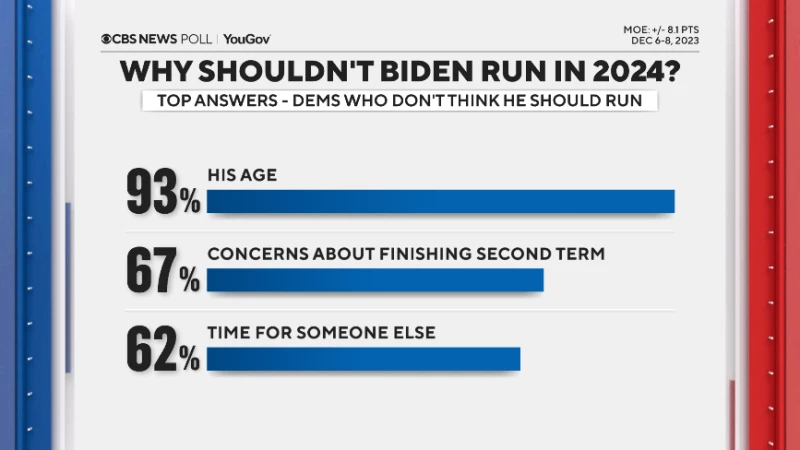
What do they want, if not Biden?
A wish list would include some philosophies about ideology or approach — at least on the hypothetical chance if they could pick someone else.
The vast majority who don't think Biden should run think it's important that the nominee promotes social justice ideas and is progressive. Despite those ideological desires, most also want someone who will work with Republicans — not criticize them or make conservatives angry.
Most also want someone who has economic or financial expertise, perhaps an indication of how much the economic environment is factoring into the election cycle. Fewer than half think it's important that the nominee be a woman or a person of color.
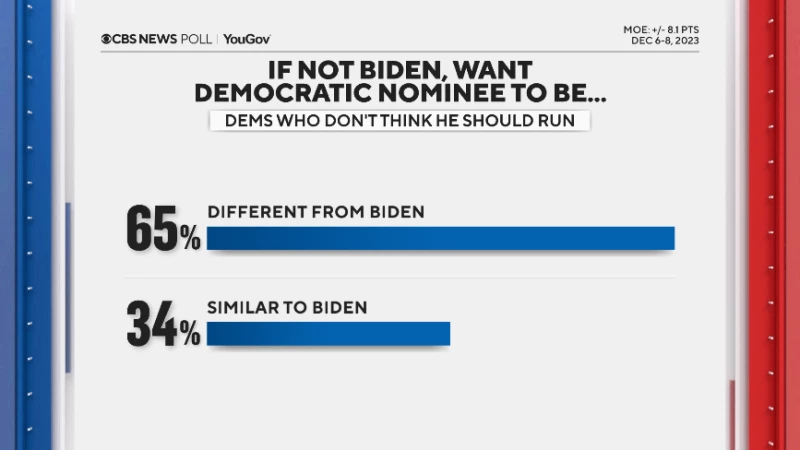
If not Biden, then who?
And yet, this segment of Democrats do not collectively have one person in mind.
In fact most of them don't have anyone in mind.
We asked them to volunteer a specific name of someone who they'd prefer the party nominate instead. Only about a third of those Democrats who don't think Mr. Biden should run volunteered anyone else specifically. And among those who did choose someone, there isn't a consensus pick.
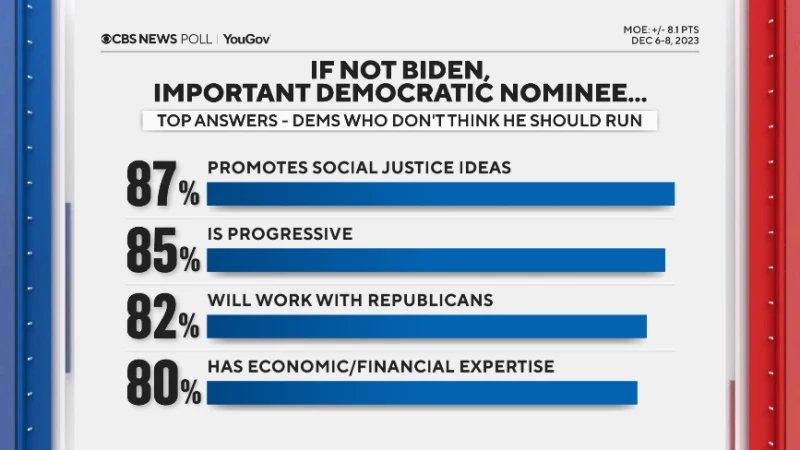
It could be that no other figure stands out, or it could be these Democrats are just voicing concerns without thinking through next steps. This isn't unusual in politics — voters can evaluate what they have, but hypotheticals are harder.
Among this already-small group offering a name, California Gov. Gavin Newsom is mentioned most frequently, but then only by about one in four of those who volunteered someone. The next most frequent name to come up is Vice President Kamala Harris, followed by independent presidential candidate Robert F. Kennedy, Jr. Some 2020 Democratic presidential candidates are also mentioned, including Transportation Secretary Pete Buttigieg, New Jersey Sen. Cory Booker, and independent Vermont Sen. Bernie Sanders. New York Rep. Alexandria Ocasio-Cortez also gets a few mentions. The word cloud below illustrates the top ten Democratic or independent names volunteered more than once by these Democratic respondents.
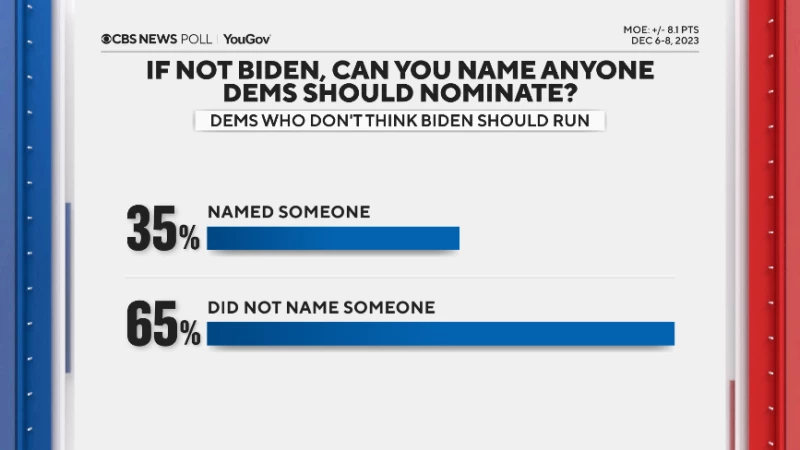
We should also note that just because some Democrats don't think Mr. Biden ought to run doesn't mean they wouldn't vote for him, as shown in our other recent polling. He still gets overwhelming support from Democrats.
This CBS News/YouGov survey was conducted with a nationally representative sample of 2,144 U.S. adult residents interviewed between December 6-8, 2023, including 771 self-identified Democrats. The sample was weighted according to gender, age, race, and education based on the U.S. Census American Community Survey and Current Population Survey, as well as past vote. The margin of error for the total sample is ±2.8 points. The margin of error for the sample of Democrats is ±5.0 points.
